This month’s post is brought to us by Carolyn Cooke who is a staff tutor in the School of Education, Childhood, Youth and Sport here at the Open University. Thank you Carolyn!
On April 16th I joined the final session of a two-day conference called ‘Education disrupted, education reimagined’ organised at incredibly short notice by the WISE foundation and Salzberg Global Seminar .
Joining with educators from around the world (over 5000 across the two days, and from nearly all continents), we engaged with challenges and opportunities arising from Covid-19 with a billion+ children around the world having had their formal learning disrupted. We heard from a range of presentations including a keynote by Andreas Schleicher, Director of Education from the OECD. The discussion was broad and deep, far too much to be recorded in a blog, but I thought the following interrelated bullet points were particularly thought provoking and have relevance to us all;
1. The crisis has further exacerbated issues of equity. For some, learning outside of formal education is a huge opportunity, if they have the resources, the support and the social, emotional learning skills to manage themselves in the new situation. We need to recognise that for some, especially those for who school is a trauma, returning is going to be difficult. For others, lack of resource, quiet spaces to concentrate, lack of self-motivation or relationships to facilitate learning hinders what they are currently able to engage with. The vulnerability of these children and their learning beyond formal settings has been further exposed by the current crisis. This inequity will have ongoing impacts as students return but also will remain a problem for future crises if not addressed at a government level.
2. There was significant concern at the lack of attention being given to under 6’s during the crisis. Both Leslee Udwin (Think Equal) and Andreas Schleicher (Director of Education from the OECD), used research showing the significance of 0-6 as the time when significant social habits are being formed (see image of slide below). They both made the point that our under 6’s right now, in these conditions, are developing these habits which will last them a lifetime. And yet, governments are hardly mentioning Early Years provision and support during the crisis.
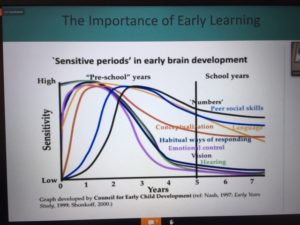
3. The covid-19 crisis has highlighted the social and emotional skills that students need to enable them to maximise their learning outside and beyond formal settings. The skills that were highlighted included; the ability to be curious, the ability to be courageous, the ability to be creative, the ability to be independent. There was a collective sense we should be doing all we can throughout the education systems to support the development of these as a matter of urgency – not knowing how quickly our students might face future challenges where they need these. There is a need to shift away from only focusing on employability skills in the narrow way they are sometimes conceived, it’s about learning how to cope in living with whatever is happening.
4. There was hope that there would be an increased recognition both in society and among students, that we can’t ‘stop’ learning, it is ongoing all the time, whether or not it is planned, in schools or in other environments. The question teachers should be asking their students is not “have” you been learning, but “what” have you been learning. The definition of learning (what it looks like, sounds like, feels like) will, for some, have been broadened hugely by their experiences during this period – but we need to acknowledge and validate these learning experiences within the formal system. The example was of the richness of a child wanting to go out in the garden to count flowers and notice how long they took to open their petals (maths / science) and contrasting that experience with their feelings of being asked to count in school contexts.
5. Learning has becoming far more community driven (at various scales), whether joining local facebook groups, accessing cultural organisations through different forums, linking with peers or family. There was a sense that rigid divisions between school and home, parents and teachers, children and adults were being significantly blurred creating an important opportunity for different ways of working collaboratively. This fundamentally changes the nature of how the curriculum is experienced, how power relationships between adults and children can be different, as co-creators and co-learners, but also of adults and children being vulnerable enough with each other to find ways of learning in new and different ways. As Aaron Eden (Brightsparks and Tinkering schools, USA) stated “How we teach teaches way more than what we teach”, its about relationships, connections and support.
6. Going forward, education systems need to be more open and responsive to novelty through anticipating changes (where we can!), being proactive and reflecting on our practices. Parents, teachers, students and policy makers all need to learn to ‘stay with the trouble’ to find new approaches and reimagine what could be. By preparing to be responsive and paying attention to challenges as opportunities, is to see different ways to move forward.
These brief notes really don’t do justice to the depth and passion of the discussions but hopefully give some food for thought! The full recording of the session can be found here and I would thoroughly recommend, even if just to listen to The Director of Education of the OECD whose keynote was packed with really important research, data and ideas.





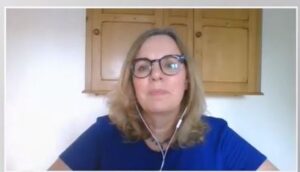
 r Lucy Rodriguez-Leon
r Lucy Rodriguez-Leon



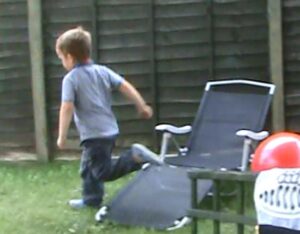
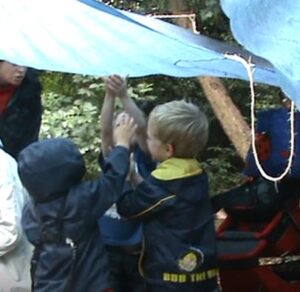
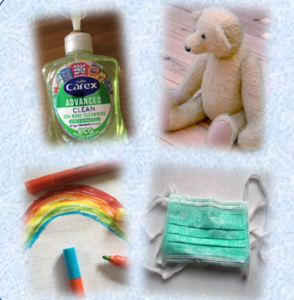
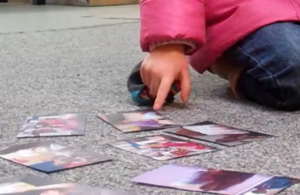

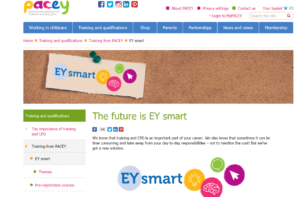
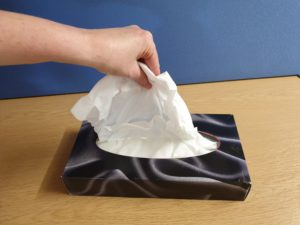 This month’s blog is written by Jackie Musgrave who is the programme lead for Early Childhood at the Open University.
This month’s blog is written by Jackie Musgrave who is the programme lead for Early Childhood at the Open University.